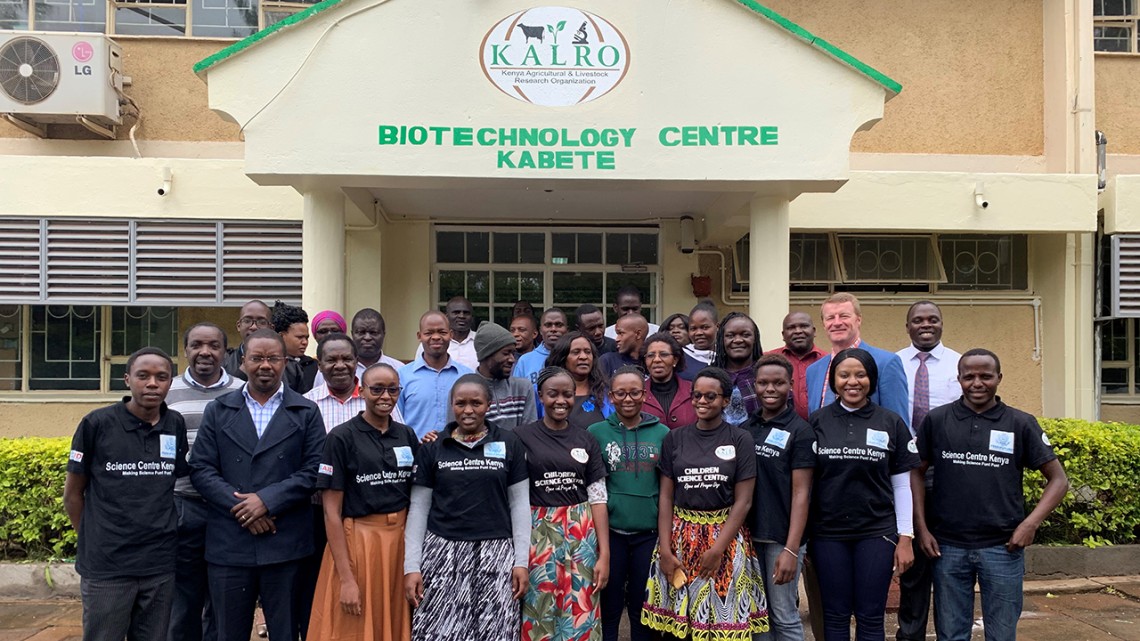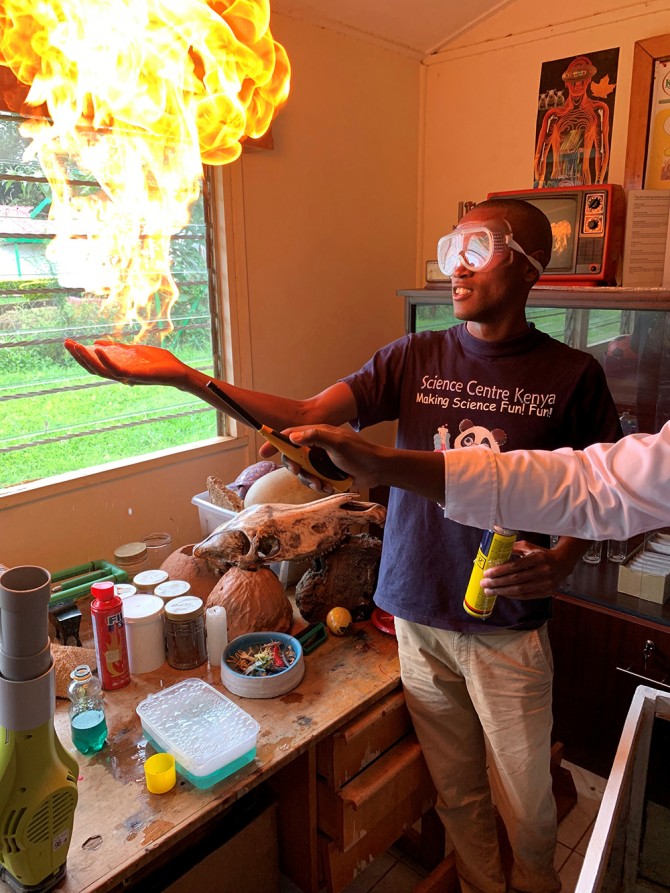
Staff at the Kenya Children’s Science Center gather with Larry Van De Valk, second row, second from right, after a team-building workshop.
Program advances art of team building around the world
By Joan Conrow
Effective, well-functioning teams don’t come together by happenstance – just ask team-building expert Larry Van De Valk, senior extension associate in the Department of Development Sociology in the College of Agriculture and Life Sciences.
“A common mistake a lot of organizations make is they think they can throw a bunch of people together and tell them to play nice,” said Van De Valk, who is also executive director of the college’s LEAD New York initiative. “It really doesn’t work like that. Team building really does need to be intentional and strategic and ongoing.”
Van De Valk shares that message – and the skills to accomplish it – with a global audience, most recently in December at the Children’s Science Center in Kenya. The organization had grown quickly since its founding in 2016, leaving Director Ken Monjero, a 2018 graduate of the Cornell Alliance for Science’s Global Leadership Fellows (GLF) program, with no time to build bonds among his staff.
Monjero was overjoyed to see his center thriving, but tempers were fraying within his staff, so Monjero asked Van De Valk for help.
Van De Valk, who has taken his Global Leadership Fellows program to every continent but Australia and Antarctica, was in Nairobi on a scouting exercise for an upcoming LEAD field trip. With funding provided in part by Cornell’s Polson Institute for Global Development, he conducted a half-day workshop at the Children’s Science Center, guiding the employees through exercises that got them better acquainted on a personal level.
“I can’t explain enough how great the training was,” Monjero said. “It helped in solving team disagreements and strife, and it has greatly improved staff efficiency and friendship. We used to work in isolation, but now we work as a team.”
Polly Endreny Holmberg, Alliance for Science training lead, has found Van De Valk’s services similarly effective.
“With each new cohort, Larry skillfully guides fellows from diverse countries and backgrounds through a program that challenges them on a personal and professional level,” she said. “The fellows leave the workshop with new ways of thinking about personal strengths and preferences, and how they can best relate to the differences in others for the benefit of their teams and shared mission.”
While the locale of his trainings may vary and the length can range from a few hours to several months, the underlying content remains consistent.
“Trust is so important,” said Van De Valk, who tailors the content of his teaching to reflect the diversity of participants, particularly in LEAD New York, which brings together people from all sectors of agriculture, including organic, conventional, industry, government, academia, and small and large producers.
“We teach leading across differences, respecting differences of opinion and other points of view, listening to conflicting points of view and responding rationally and addressing confirmation biases so you’re not just hearing what you want to hear,” Van De Valk said.
He also addresses the critical role of organizational leaders in creating a tolerant, cohesive corporate culture, and reflects on the broader societal implications of divisiveness.
“The polarization and lack of civil discourse we see in our country today is certainly relevant to what we do in our program,” he said. “If anything, it’s more important than ever to teach people how to be better critical thinkers.”
Joan Conrow is the managing editor of the Cornell Alliance for Science.
Media Contact
Get Cornell news delivered right to your inbox.
Subscribe

